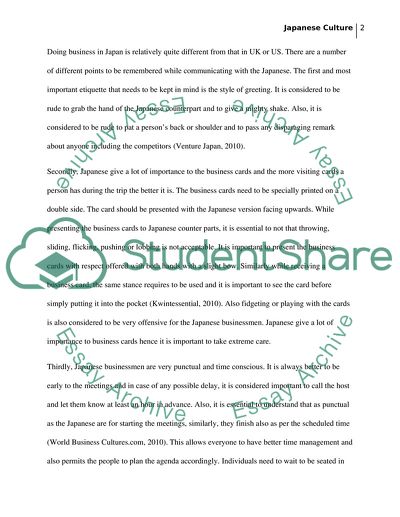Japanese Business Culture Research Paper Example | Topics and Well Written Essays - 750 words. Retrieved from https://studentshare.org/business/1739840-business-culture
Japanese Business Culture Research Paper Example | Topics and Well Written Essays - 750 Words. https://studentshare.org/business/1739840-business-culture.


